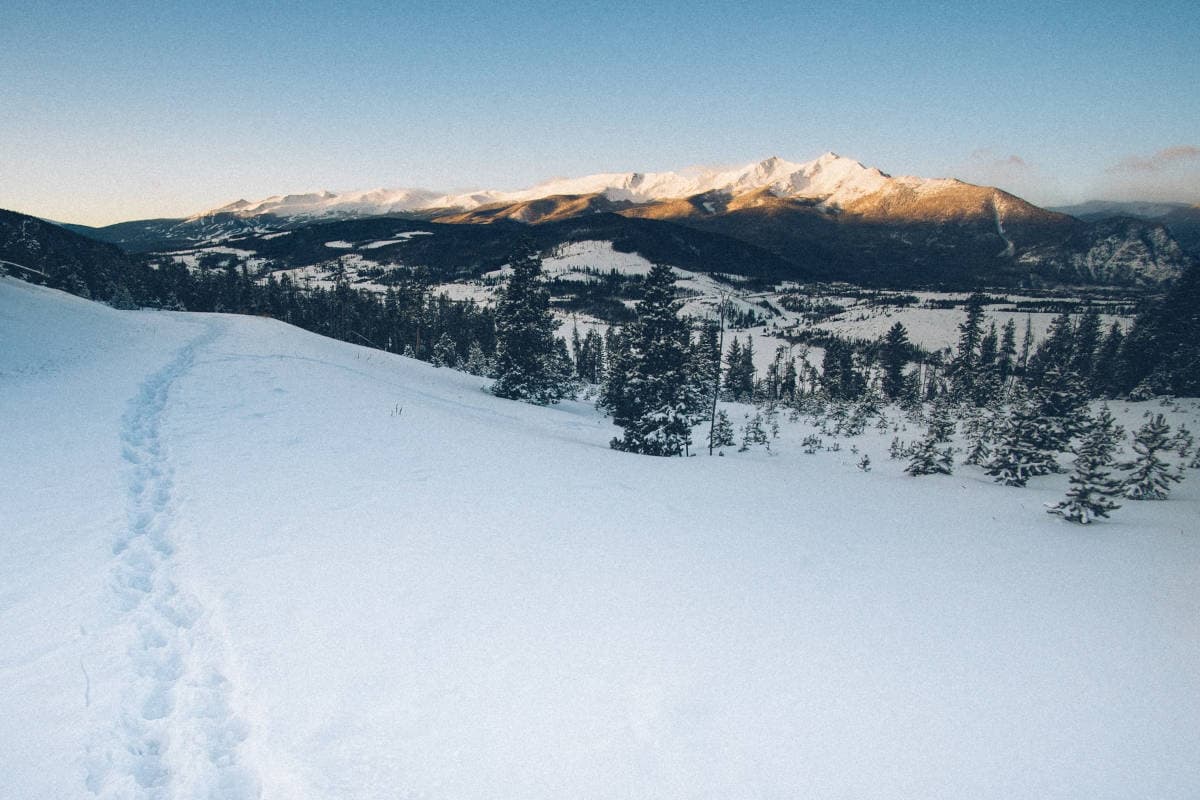
This snow season has been a relatively dry one – although we had a good stretch of snow accumulation in January, February, and March, the rest of the season has been a bit disappointing. Although we’re expecting some late-season snow today (we’re hoping for all the snow we can get!) estimates still put this season at slightly below-average snowfall totals.
While business owners are generally happy when they haven’t had to shovel their sidewalks, and morning commuters don’t have to tackle snowy, ice-covered roads, many people overlook just how important snow is in Colorado. Our snow accumulation (or lack thereof) affects many aspects of our lives, and without it, things would be quite different here.
Here’s how Colorado’s snow accumulation affects our state – its land, its residents, and its economy:
Colorado’s Snow – Lifeblood of the Centennial State
Water Availability & Our Environment
Colorado’s snow accumulation accounts for roughly 70-80% of our annual water supply. Drinking water, agriculture, irrigation, etc. – the majority of it all comes from our snowpack. What’s troubling is that over the last 20 years, we’ve had 12 snow seasons with below-average snowfall totals (less than 56.9 inches). Colorado is in the midst of historic drought conditions (along with much of the Western US), and less snow accumulation only further contributes to these conditions.
Snowmelt supplies much of Colorado’s available water as it melts and trickles down from the Rockies through the spring until early summer, filling our rivers, lakes, reservoirs, and other water sources. Another troubling fact is that snow is melting earlier than it was 20 years ago. This means that spring starts a little bit sooner – and summer lasts a little bit longer – every year.
Less snow accumulation, shorter snow seasons, and longer summers all contribute to harsh, dry conditions and the increased risk of wildfires. In fact, the 10 largest wildfires in Colorado’s history have all happened within the last 20 years, many of them occurring in years where we had significantly less snowfall than normal.
Agriculture
Colorado’s agriculture is incredibly dependent on snow accumulation. Agriculture accounts for the vast majority of Colorado’s annual water usage, sitting right about 85-86%. This is mostly due to flood irrigation, the most common (and least efficient) method used in Colorado. Many farmers are starting to shift towards sprinkler and drip irrigation methods as there’s a bigger spotlight on conservation and efficiency in recent years.
A good snow season – even one big snowstorm – can have a huge effect on Colorado’s agriculture. The Great Colorado Snowstorm of December 1913 is a prime example of this. Although the snow season started early that year, a relatively warm November led to concerns about the lack of moisture for the next year’s crops. However, after the Great Colorado Snowstorm – which dropped over 45 inches of snow in Denver, 53 inches in Estes Park, and 86 inches in Georgetown in the span of a few days – there was more than enough snowpack to ensure that the next year’s harvest boomed. Colorado’s so-called “Golden Harvest” in 1914 was valued at over $115,000,000, or over $3 billion today.
The Ski, Recreation, and Tourism Industries
Colorado’s ski industry is entirely dependent on our annual snowpack. The industry generates over $3 billion in revenue per year and provides over 46,000 jobs. However, fluctuating seasonal snow totals can have a big effect on the industry. The incredibly dry 2017-2018 snow season (which only had 25.7 inches recorded at DIA – over 30 inches below average) led to a 5.3% drop in revenue that year – an estimated loss of about $175 million.
Snow accumulation is also a vital part of Colorado’s recreation and tourism industries. Our tourism industry (skiing included) is actually the second-largest industry in the state. All of our water-related activities – fishing, canoeing/rafting, camping, ice climbing, etc. – depend on water supplied by snowmelt that feeds into our rivers, lakes, and reservoirs. More than half of Coloradans are involved in some sort of water-based activities, and these activities are some of the biggest draws of tourism in the state.
Snow Affects Colorado in Many Ways – Don’t Let It Affect Your Business
Although snow is incredibly important to Colorado’s environment, economy, and way of life, there’s no need to let it get in the way of your business. For over 25 years, Snow Management Services has protected Denver-area commercial properties from whatever winter throws our way. It all starts with our winter planning and risk management strategies. Our snow removal and de-icing services will keep your property clear – sidewalks and all – and we can also haul snow off-site to keep your property safe and presentable. To see how SMS can help your Denver business or commercial property, give us a call today at (303) 750-8867 or get in touch with us online to get started.
